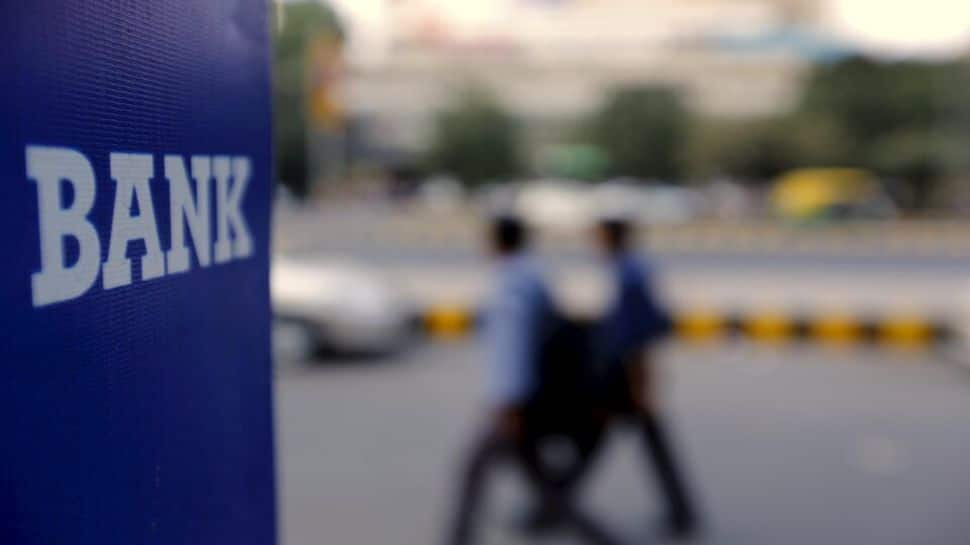Politics
Thai cannabis-championing tycoon takes office as PM
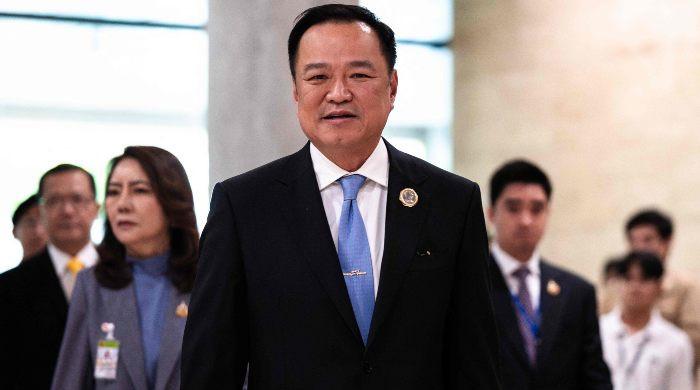
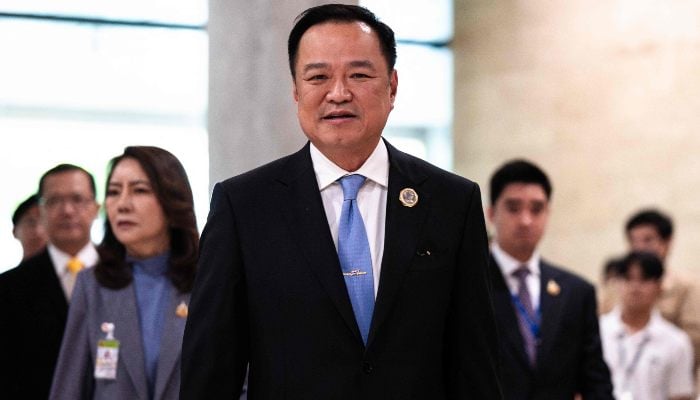
- Magnate becomes the kingdom’s third leader in two years.
- Tycoon ousts long-dominant Shinawatra dynasty.
- Coalition backs Anutin on condition of early elections.
BANGKOK: Thai tycoon Anutin Charnvirakul took office as prime minister on Sunday, with the cannabis-championing conservative ousting the nation’s dominant political dynasty and setting course for elections early next year.
Since 2023 elections, Thailand’s top office has been monopolised by the Pheu Thai party of the Shinatawatra dynasty — a populist force which has long sparred with the pro-monarchy, pro-military establishment.
But dynasty heiress Paetongtarn Shinawatra was last month sacked by court order, and Anutin rushed to piece together his own coalition government — winning a Friday parliament vote to shut Pheu Thai out of office.
Anutin previously served as deputy prime minister, interior minister and health minister — but is perhaps most famous for being the architect of Thailand’s 2022 cannabis decriminalisation.
The construction magnate becomes the kingdom’s third leader in two years, and will also serve as interior minister. But he has taken power with coalition backing conditional on dissolving parliament within four months to hold fresh elections.
“Though we do not have much time, I hope to receive cooperation from everyone,” Anutin told reporters after taking office.
“My government will work tirelessly,” he added. “We will dedicate ourselves to work because we only have four months.”
His term officially began after the royal endorsement of King Maha Vajiralongkorn, read aloud in a formal ceremony at Anutin’s Bhumjaithai Party headquarters in Bangkok.
“His Majesty the King has endorsed Mr Anutin Charnvirakul to be prime minister from now onwards,” said secretary-general of the lower house of parliament Arpath Sukhanunth, reading out the royal command.
Dynasty in decline
Anutin is also known for managing tourism-dependent Thailand’s Covid-19 response and causing a backlash after accusing Westerners of spreading the virus.
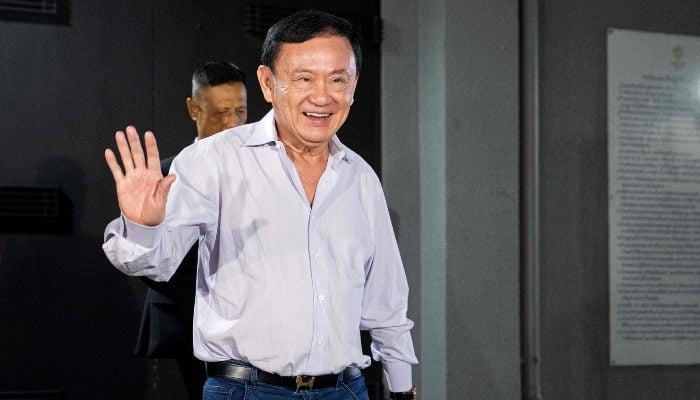
He was once an ally of the Shinawatras — who have been a dominant force in Thai politics since the turn of the century, but are increasingly faltering after a succession of legal and political setbacks.
Anutin abandoned his coalition with their Pheu Thai Party this summer in apparent outrage over Paetongtarn’s conduct during a border row with neighbouring Cambodia.
Thailand’s Constitutional Court found on August 29 that conduct had breached ministerial ethics and fired her after only a year in power.
Thaksin Shinawatra, the dynasty patriarch, flew out of the kingdom in the hours ahead of the Friday parliament vote confirming Anutin — bound for Dubai, where he said he would visit friends and seek medical treatment.
The Supreme Court is due to rule on Tuesday in a case over Thaksin’s hospital stay following his return from exile in August 2023, a decision that could affect the validity of the former prime minister’s early release from prison last year.
While his guilt is not the subject of the case, some analysts say the verdict could see him jailed.
Thaksin on social media promised to return from Dubai to attend the court date “in person”.
“Me and my colleagues have faced legal bullying but the past is now behind us,” Anutin said on Sunday.
“My government will adhere to the law and will not interfere in the justice system, letting the law take its course.”
Politics
Bangladesh’s student-led party allies with JI ahead of election
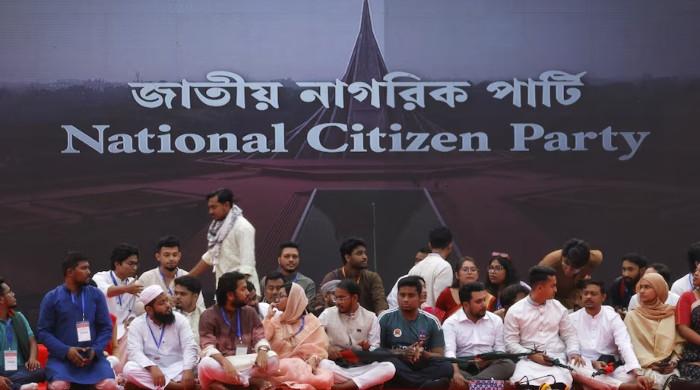
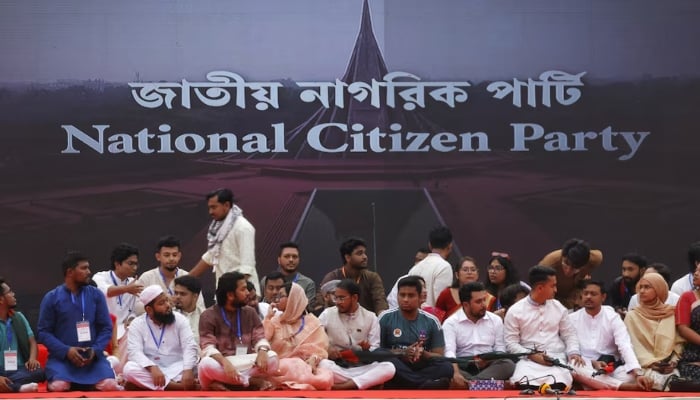
- NCP chief says final list of candidates to be announced on Monday.
- Tasnim Jara, several other leaders quit NCP in protest.
- Critics of NCP’s move say it undermined party’s founding ideals.
DHAKA: The student-led Bangladeshi party born out of the protest movement that toppled Prime Minister Sheikh Hasina has forged an electoral alliance with Jamaat-e-Islami ahead of February’s parliamentary election, stirring internal rifts.
Since last year’s uprising, the National Citizen Party (NCP) has cast itself as a centrist, reformist alternative to nepotism and two-party dominance, but as the election nears, it is struggling to turn street power into voter support.
NCP chief Nahid Islam said on Sunday the party had decided to enter into the alliance for greater unity, adding that the final list of candidates would be announced on Monday. Other NCP figures have described the alliance as a pragmatic step in a fragmented political landscape.
But the decision to join forces with JI has already prompted internal ructions.
Tasnim Jara, a doctor who left a career in Britain to join the NCP, becoming a leader in the party, resigned on Saturday and said she would contest the election as an independent candidate. Several other members have also quit.
BNP regains momentum
Critics of the NCP’s move said it undermined the party’s founding ideals.
“The moral support I had for the NCP will no longer exist due to this ideological mismatch,” said one university student, asking not to be named.
The partnership comes amid broader political realignments, with the Bangladesh Nationalist Party (BNP) — aligned with ailing former Prime Minister Khaleda Zia and effectively led by her son, acting chair Tarique Rahman — regaining momentum following Rahman’s return after nearly 17 years in exile.
The February 12 election will be held under an interim administration headed by Nobel laureate Muhammad Yunus, who took charge after Hasina’s ouster and is seen as crucial to restoring political stability after nearly two years of turmoil.
Politics
Row deepens over vanished river wave in Munich


A row over the disappearance of a famous river surfing wave in Munich escalated on Sunday as authorities removed a beam inserted over Christmas to recreate the attraction.
The Eisbach wave on a side branch of the Isar River had been a landmark in the Bavarian city since the 1980s but it vanished in October after annual cleanup work along the riverbed.
Activists had placed a beam in the water early on December 25 to partially recreate the wave, according to German media reports, and hung a banner above the water that read “Merry Christmas”.
But a spokesman for the Munich fire service told AFP the “installation was removed” on Sunday at the request of city authorities.
Activists have made several attempts to reinstate the wave in the city’s Englischer Garten park since October — only to see them reversed.
The local surfers’ association IGSM on Thursday posted a statement on its website saying it had abandoned its campaign to save the wave, accusing city authorities of dragging their feet.
The Eisbach wave was considered the largest and most consistent river wave in the heart of a major city and had become a tourist attraction in Bavaria’s state capital.
Franz Fasel, head of the IGSM, told AFP in July that 3,000 to 5,000 local surfers were using it.
Access to the wave was cut off for several months earlier this year after the death of a 33-year-old Munich woman who became trapped under the surface while surfing at night.
Politics
Three Iranian satellites launched from Russia
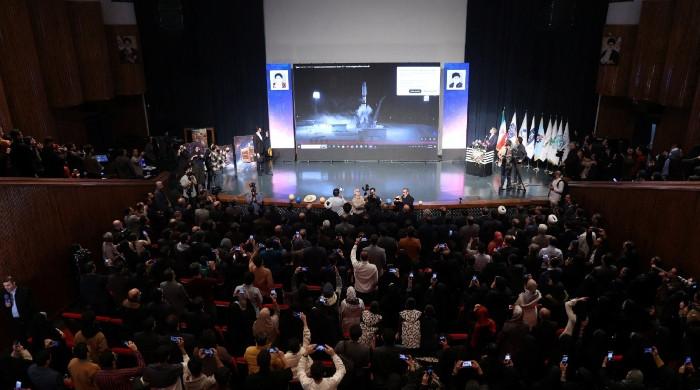
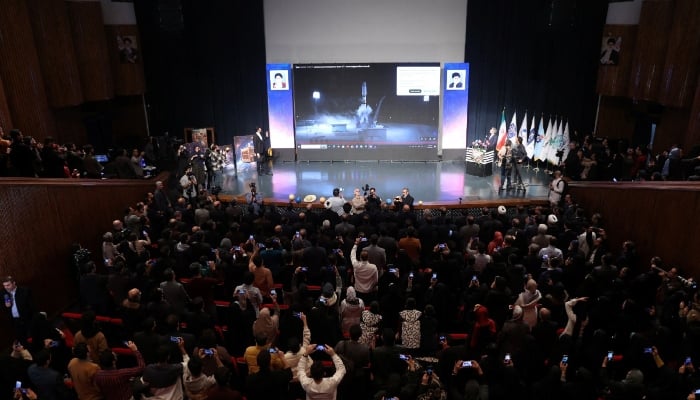
- Iranian scientists produce satellites despite sanctions: envoy.
- Three satellites are for low-earth orbit, says state news agency.
- Iran increasingly relies on Russia to put satellites in orbit.
DUBAI: Three more Iranian satellites were sent into space on Russia’s Soyuz launchers on Sunday, Iranian state media said, as the two US-sanctioned nations extend their space collaboration.
Iran has increasingly relied on its ally Russia to put satellites in orbit in recent years, with the latest three intended to help with monitoring agriculture, natural resources and the environment.
“These satellites were designed and produced by Iranian scientists … despite all the sanctions and threats,” Iran’s ambassador to Russia Kazem Jalali told state TV in reference to Western measures over Tehran’s nuclear programme.
“We are working together (with Russia) in different areas. Some are evident and some we don’t like to clarify.”
Iran’s official IRNA news agency said the three satellites – Paya, Zafar 2,and a second Kowsar – were for low-earth orbit.
Since Russia’s invasion of Ukraine in 2022, Iran and Russia have deepened ties, with Western countries accusing Iran of providing missiles and drones for Russian attacks.
-
Sports1 week ago
Alabama turned Oklahoma’s College Football Playoff dream into a nightmare
-

 Entertainment1 week ago
Entertainment1 week agoRare look inside the secret LEGO Museum reveals the system behind a toy giant’s remarkable longevity
-
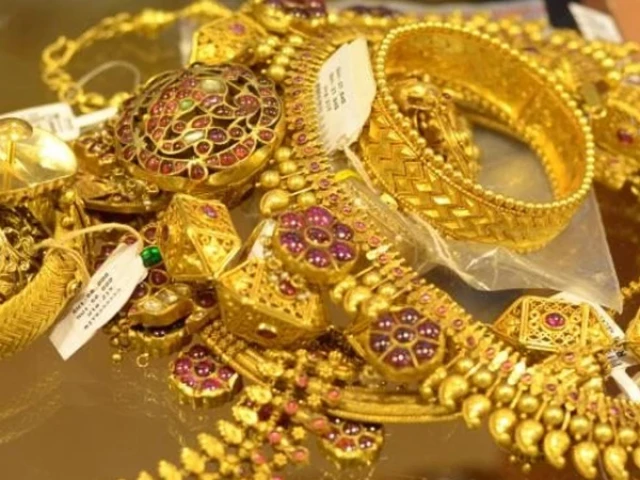
 Business1 week ago
Business1 week agoGold prices in Pakistan Today – December 20, 2025 | The Express Tribune
-

 Entertainment1 week ago
Entertainment1 week agoZoe Kravitz teases fans with ring in wedding finger
-

 Entertainment1 week ago
Entertainment1 week agoIndia drops Shubman Gill from T20 World Cup squad
-

 Tech1 week ago
Tech1 week agoWe Tried and Tested the Best Gifts for Plant Lovers With Our Own Green Thumbs
-

 Fashion1 week ago
Fashion1 week agoColumbia launches star-studded US Curling team uniforms for 2026
-

 Politics1 week ago
Politics1 week agoUS intercepts oil tanker off Venezuelan coast, Reports



